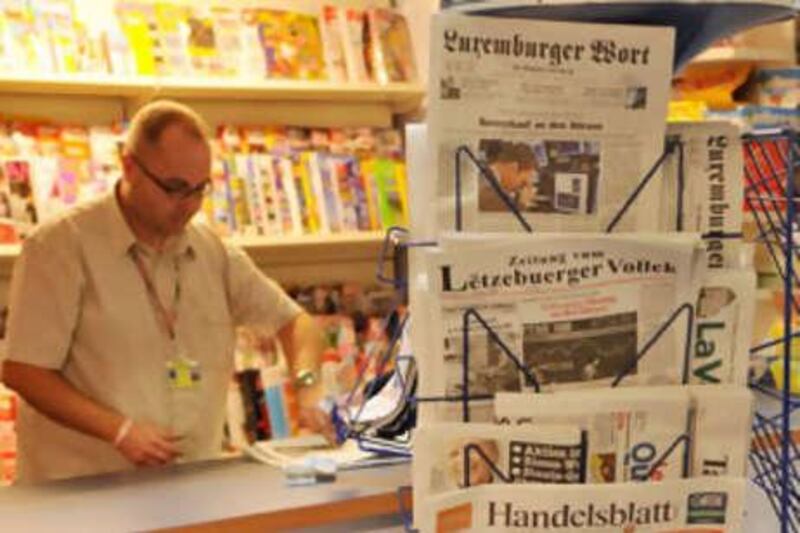A toxic mix of structural, cyclical and funding problems confronting European media may force banks to take more control of newspapers as tightening credit markets limit their options to relax loan conditions. This month's decision by the US newspaper group the Tribune Company to file for bankruptcy protection can be seen as a sign that lenders' attitudes are hardening, despite the dubious benefits for banks of owning poorly valued media assets when both advertising revenues and circulations are falling.
Several struggling US newspaper groups have persuaded lenders to relax debt covenants in recent months and the the Mecom Group, based in the UK and owner of more than 300 titles, became Europe's first newspaper publisher to win a covenant "holiday" this week. But Ken Doctor, an industry analyst with the US information and publishing research firm Outsell, said: "The new stresses on the lenders make the relationship between the companies on the edge of default and their lenders a whole new ball game."
The first signs that investors are less willing to budge on loan terms are already there in Europe. Lenders to the private equity-owned Amadeus Global Travel Distribution rejected a loan covenant waiver request in October, and the UK chemicals company Ineos this month had to offer a large margin payment increase to get its waiver request approved. Mecom, which publishes titles around Europe including the Berliner Zeitung, won only a two-month delay for a covenant test due at the end of this month at the price of ?2.5 million (Dh12.8m) and a 175 basis-point rise in its core lending margin.
It hopes to sell assets and says trading conditions remain challenging. Mecom shares are now worth less than a penny, giving it a market value of just £13.5m (Dh73m), while net debt was £587m at June 30. "Some of these organisations may not be able to pay interest charges," said Alex DeGroote, a media analyst at Panmure Gordon, the institutional investor firm and investment bank. "The banks will get the upper hand in any process of break-up and/or asset sales."
The privately held Tribune was an extreme case. It was unable to meet covenants to keep debt below nine times earnings, whereas most struggling European-listed counterparts are dealing with covenants to keep the ratio at about three or four. Private equity leveraged buyouts such as that of Tribune commonly burdened media companies with debt of six to seven times earnings before interest, tax, depreciation and amortisation (Ebitda).
The owners of PCM, a Dutch group whose top titles include NRC Handelsblad, were reprimanded by court investigators this month for loading the company with too much debt, even though net debt was only four times Ebitda at the time. Even so, the equity values of European companies such as Mecom and Britain's Johnston Press have tumbled so far that debt-for-equity swaps seem likely in cases where companies have trouble meeting interest payments and buyers are scarce.
The regional newspaper group Johnston has a market value of £78m, about one-sixteenth of its value at the beginning of the year, and net debt of £465m. "My hunch is that lenders wouldn't shut newspapers down, but the existing ownership structure would be changed," said one London-based financial analyst who follows the media sector. Lenders are already starting to make their influence felt. McClatchy, the third-biggest US newspaper group and publisher of the Miami Herald, negotiated looser credit covenants in September, but in return agreed not to pay dividends in future unless it met debt-to-cash-flow targets.
Italy's L'Espresso, even though its debt is only 1.8 times Eebitda, voluntarily stopped its dividend, and others are finding ways big and small to cut costs. But there is a limit to how far newspaper groups can restructure themselves, adapt to the internet's new realities and cut costs before banks step in to take more drastic action. Even those ahead of the digital curve will struggle, with about 20 unique visitors online required to make up the money yielded to newspapers by one print reader.
"If they could flip this switch tomorrow and could be completely digital they would have only 15 to 20 per cent of the revenues they're making today," said Mr Doctor. "It's like hurtling down a roller coaster and you're going over the top and you don't know what the bottom's going to look like." * Reuters





